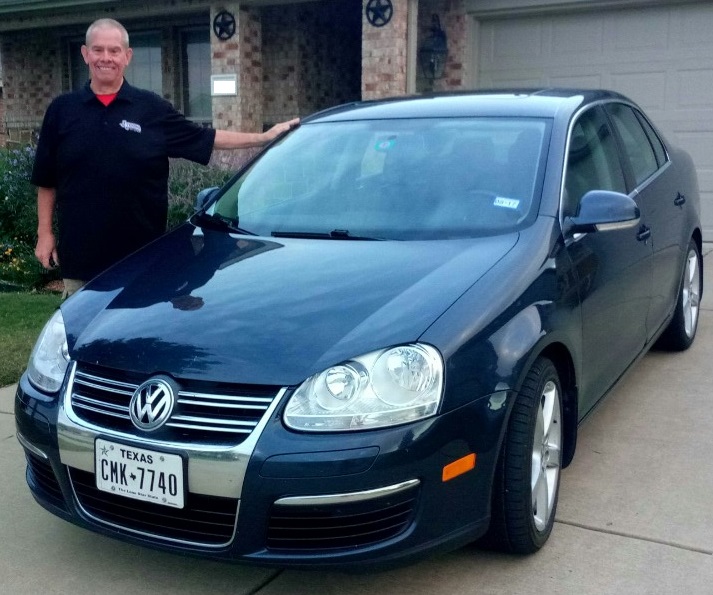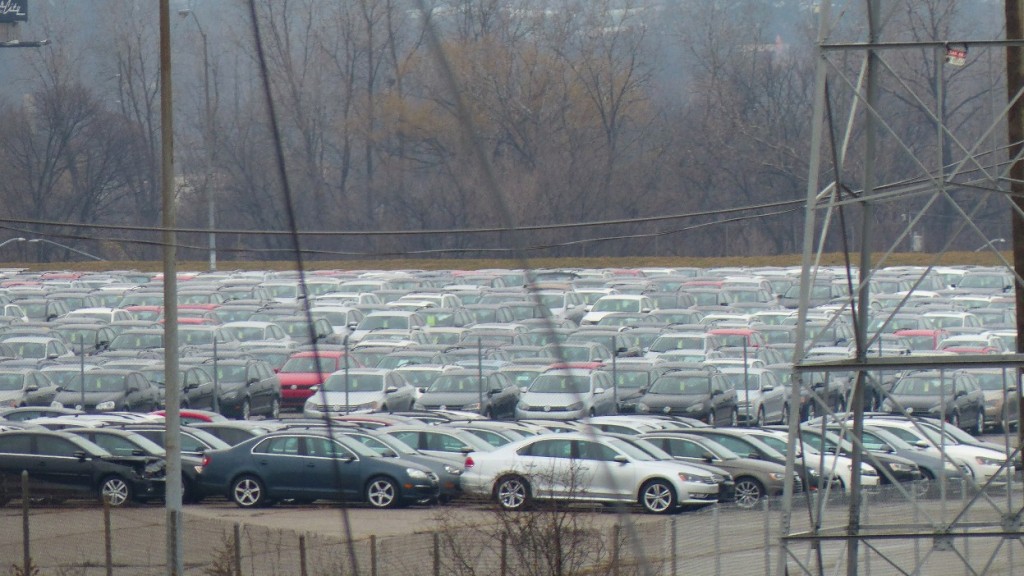We've all become familiar with the sights of thousands of cars blanketing remote parking lots after storms such as Hurricanes Hugo and Irene.
The latest source of all that stationary sheet metal is a storm of a different kind—the legal storm that ensued after Volkswagen agreed to buy back as many as 400,000 of its TDI diesels after courts found that they didn't comply with emissions standards.
Now about 300,000 of those cars sit nose to bumper and door-handle-to-door-handle on 37 ginormous parking lots around the country.

Paul Hayes with his Volkswagen Jetta TDI
Our team got a look at them sitting on one of the lots outside Denver, as shown in the photos, top, and below.
As anyone who knows cars, or has ever owned an old machine can tell you, cars are no good at sitting.
When a car is left to sit, things begin to deteriorate. Seals dry out and leaks develop. Tires begin to rot. Bearings get flat spots. Critters move in. It's not pretty.
CHECK OUT: VW to spend $3 billion more on rising cost of diesel buyback
So we wondered, what, if anything is being done to try to preserve these cars.
Under its court-approved consent decree, Volkswagen agreed that it would try to resell as many of these used cars as possible, after upgrading their emissions systems.
If the company were serious about doing so, we realized, it couldn't afford to let the cars sit and rot.

Volkswagen turbodiesels await their fate near Pikes Peak International Raceway in Colorado Springs
With that question in mind, we reached out to Volkswagen to ask what the holdup is that's keeping these cars stranded like zombies in so many parking lots across the country. What steps are being taken to ensure that they remain in salable condition? And how many does VW realistically expect to be able to resell?
In a written response, the company said it is trickling the cars back into the market so as not to overwhelm demand and depress prices:
"As Volkswagen releases the vehicles back into the market, we are consciously balancing meeting market demand and monitoring supply as to not create a surplus," the statement reads, in part.
DON'T MISS: Bosch to pay VW diesel owners $330 million in emission scandal too
The company is also reselling the cars first to Volkswagen dealers. VW dealers will offer them with a two-year, unlimited certified pre-owned warranty from Volkswagen that other resellers cannot offer. All TDIs resold to the public will get a four-year, 48,000 mile extended emissions warranty.
The TDIs resold through Volkswagen dealers are likely to be the cream of the crop—newer cars with relatively few miles.
Other cars will be resold through used-car auction houses and may end up at local used-car lots.

Volkswagen TDI diesel cars stored at Pontiac Silverdome (Photo by Jalopnik)
Volkswagen acknowledges in its statement that some will be "responsibly recycled." That sounds like a euphemism for "sold to junk yards, dismantled, and parted out."
In perhaps the most surprising revelation in the response, the company revealed that it has contracted with "professional port and logistics processors" to put the cars through a 30-day maintenance cycle, in which they are each started, driven around the lot, and washed every 30 days. That's an awful lot of washing!
If you always wanted a TDI, your only option now is to look for a used one at a dealership near you. The supply shouldn't run out any time soon.












